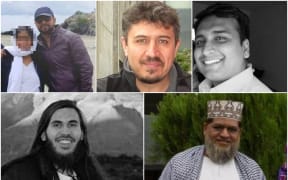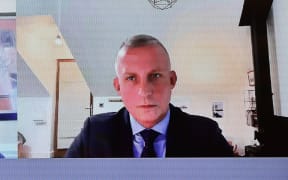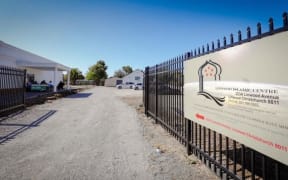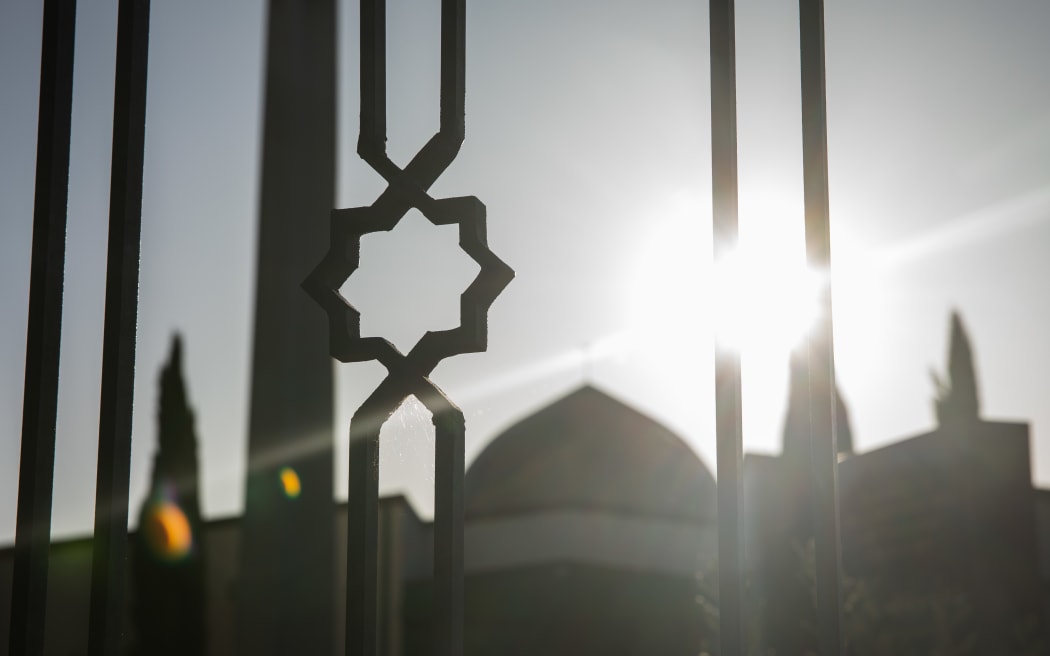
Christchurch's Al Noor Mosque. Photo: RNZ / Samuel Rillstone
Delays and confusion in mass casualty shootings like the Christchurch terror attack are not uncommon, an emergency medicine expert says.
United States-based Dr John Hick has praised police and paramedics who responded to the massacre at Al Noor Mosque and Linwood Islamic Centre that left 51 worshippers dead on 15 March 2019.
He told the inquest initial confusion and delays were common in situations where many people were dead or injured.
"With 49 initial fatalities and 51 wounded in two different locations, the demands of the ambulance and hospital system were intense and delays in the care delivered are expected due to scene safety concerns, assessment time for the 100 victims, identifying the living and moving them to an ambulance for transport," he said.
"There are many competing demands on police dispatchers and initially, an unclear understanding of the situation and victims is common."
But Dr Hick also highlighted some areas that could be improved to help emergency services work better together if such an incident occurred in the future.
While Fire and Emergency New Zealand was no involved in the response to the terror attack, he said the agency was an "excellent resource" and it was "imperative" that they be more integrated with police in such an incident.
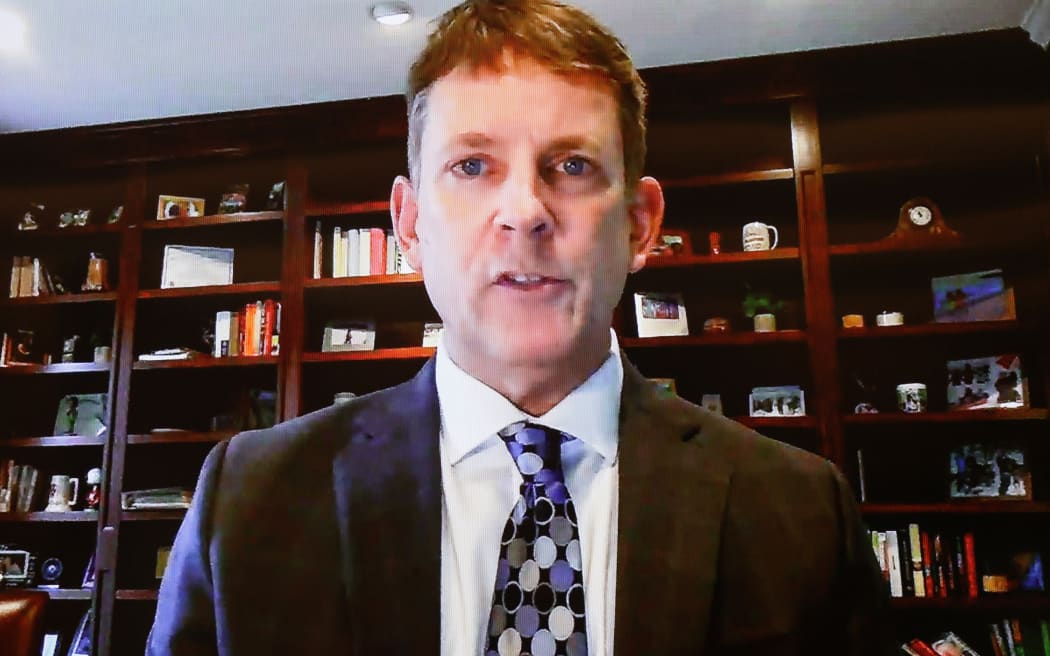
Emergency medicine expert Dr John Hick. Photo: Stuff / Chris Skelton
Hick said St John should consider automatically dispatching multiple ambulances once a mass casualty incident was declared.
He also suggested adding "stop the bleed" kits to police equipment and using the same codes for police and paramedics to understand when a scene was safe to enter.
First responders needed a rapid "dead or alive" triage policy, with a focus on taking injured people to hospital as soon as possible, Hick said.
Hick said he would also encourage multiple patients being transported in one ambulance, or in private vehicles, if necessary.
The Coroners Court earlier heard people at Al Noor Mosque were told to leave the grounds and even threatened with arrest when they asked to go back inside to help the dying.
Hick told the court he agreed with officers' handling of the situation because they had to prioritise making the mosque safe and there was no time to explain or negotiate with bystanders.
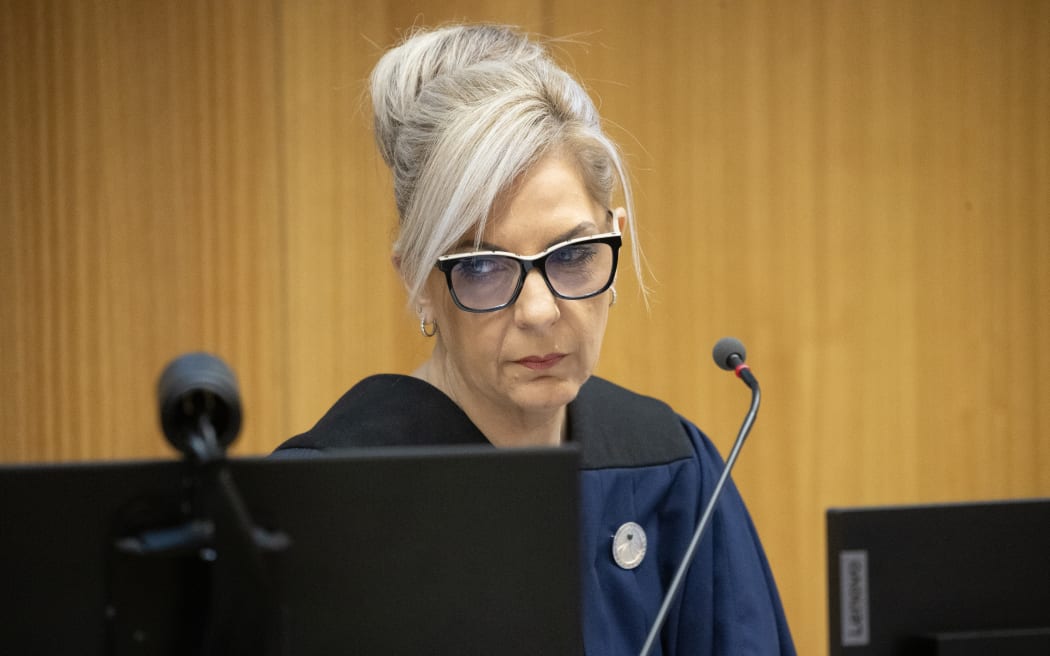
Deputy chief Coroner Brigitte Windley. Photo: NZ Herald / George Heard
"They are not there in that time to help heal or even to understand, nor do they have time to explain. They're focused on minimising additional loss of life, but that does not mean that they don't care," he said.
Fears a backpack found at the mosque was an improvised explosive device were unfounded, but if it was a home-made bomb, Hick said the was a risk everyone could have been killed.
Hick also recommended joint training and exercises between police, St John and FENZ so staff were better prepared for any future attack.
Given the policies and protocols that were in place prior to the attack, Hick said: "I would have expected a much higher degree of failure in this situation."
The court heard a witness was prompted to make a statement after reading RNZ coverage of the inquest.
The court earlier heard that police and St John Special Emergency Response Team (SERT) staff pulled over for six minutes on their way to the Linwood Islamic Centre.
SERT paramedic Karen Jackson told the court she spent most of the time outside the vehicle, putting on ballistic protection and speaking to a woman who was trying to get to the mosque.
In a statement read to the court by lawyer Abigail van Echten, the witness said she was confident she was the woman referred to by Jackson and had a different memory of the encounter.
The woman, who cannot be named, said her husband was at the mosque and had called her to tell her about the attack.
The couple had only been in the country for two months and did not have a car.
While waiting for a bus to the mosque she saw a SERT vehicle on the side of the road and did not see anyone outside the vehicle.
When she approached, the woman said someone in the back seat rolled down the window. The vehicle was "crammed" with people, and she could see guns in the car.
The woman said her interaction with people in the vehicle lasted only 10-15 seconds and she was told not to go to the mosque.
The inquest has examined the following 10 issues over seven weeks:
- Events of 15 March 2019 from the commencement of the attack until the terrorist's formal interview by police
- Response times and entry processes of police and ambulance officers at each mosque
- Triage and medical response at each mosque
- The steps that were taken to apprehend the offender
- The role of, and processes undertaken by, Christchurch Hospital in responding to the attack
- Coordination between emergency services and first responders
- Whether the terrorist had any direct assistance from any other person on 15 March 2019
- If raised by immediate family, and to the extent it can be ascertained, the final movements and time of death for each of the deceased
- The cause of death for each of the victims and whether any deaths could have been avoided
- Whether Al Noor Mosque emergency exit door in the southeast corner of the main prayer room failed to function during the attack and, if so, why?
The inquest continues.
